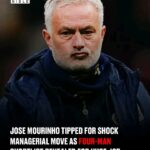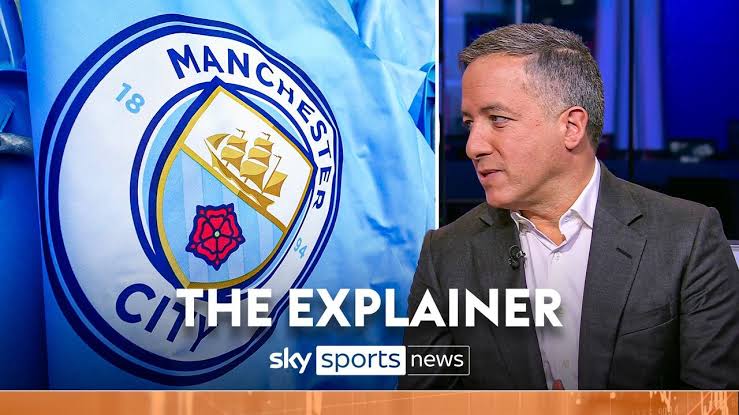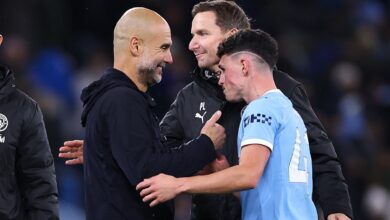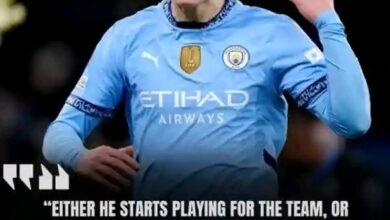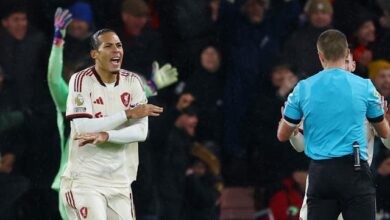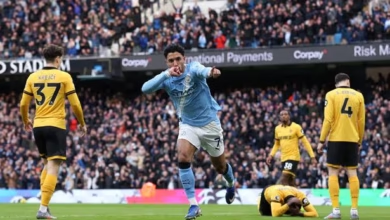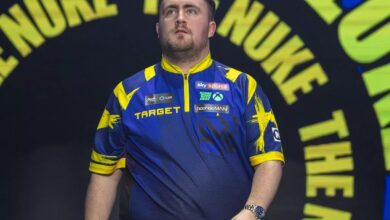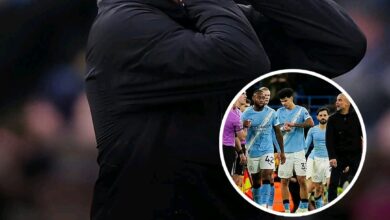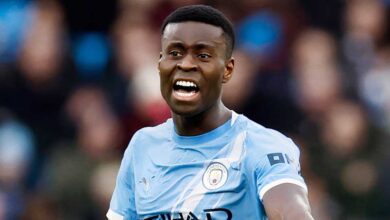LIONEL MESSI AGREED PREMIER LEAGUE MOVE Messi agreed to the shock deal back in 2014 after a phone call with the club’s manager.
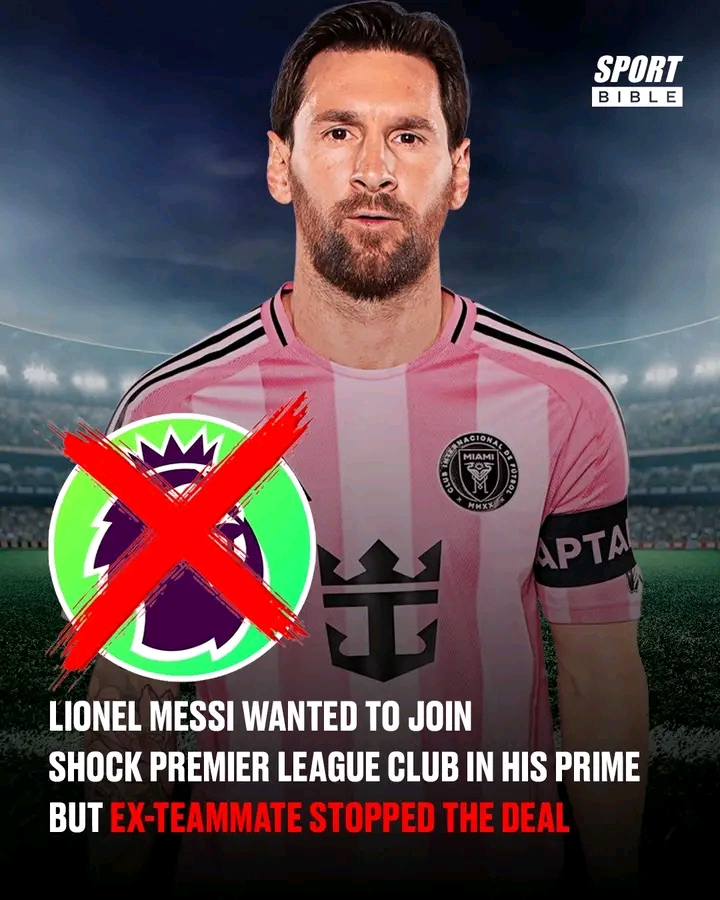
Lionel Messi was reportedly persuaded to join Chelsea during his prime years according to a recent article. Jose Mourinho convinced Messi to consider signing for Chelsea in 2014 while Mourinho was in his second stint as Chelsea manager. Chelsea were ready to activate a reported release clause of €250m in Messi’s Barcelona contract. The London club were even prepared to pay Messi £50m per season for his services. Journalist Gianluca Di Marzio claimed in his book that a video call between Mourinho and Messi persuaded the Argentinian to consider Chelsea.
Messi’s admiration for Mourinho and the charm of London made the move tempting for the Barcelona star. A lunch meeting between Mourinho and Messi was supposedly scheduled to discuss the potential transfer. Mourinho tried to charm Messi with his typical charismatic approach during their conversations. The Portuguese manager told Messi that Barcelona would build him a statue despite his efforts to lure him away. Mourinho reportedly gave Messi a dramatic speech about finding happiness at Chelsea if he ever became unhappy at Barcelona.
Mourinho told Messi that if one morning he woke up and everything felt wrong he would find Mourinho waiting for him behind the gate of happiness. By July 2014 Chelsea were reportedly preparing an official offer for the Argentinian forward. New Chelsea signing Cesc Fabregas was excited about the possibility of Messi joining him at Stamford Bridge. A major issue arose because Messi’s father Jorge was completely unaware of these transfer talks. Fabregas informed Deco who was an agent at the time and now serves as Barcelona’s sporting director about the ongoing negotiations. Deco then told Jorge Messi about these secret discussions which surprised Messi’s father. Jorge confronted his son about these transfer talks that he knew nothing about. Messi claimed ignorance telling his father he didn’t know what he was talking about. This confusion and breakdown in communication effectively ended the transfer possibility. Messi remained at Barcelona until his eventual departure to Paris Saint-Germain in 2021. He later moved to Inter Miami in 2023 where he currently plays.
The potential transfer would have dramatically altered football history had it materialized. Messi’s move to the Premier League would have been one of the biggest transfers of all time. Chelsea under Mourinho with Messi would have been an incredibly formidable team. The Premier League would have benefitted enormously from having arguably the world’s greatest player. Barcelona would have suffered a tremendous loss if Messi had departed in 2014. Messi’s career trajectory would have taken a completely different path with a move to England. The €250m release clause would have been a world record transfer fee at that time. The reported £50m annual salary would have made Messi the highest-paid footballer in Premier League history. The secret nature of these talks indicates how seriously both parties were considering the move. Mourinho’s persuasive abilities nearly pulled off what would have been his greatest transfer coup.
Barcelona fans would have been devastated to lose their greatest ever player to Chelsea. Chelsea supporters would have been ecstatic to welcome the world’s best player to Stamford Bridge. Fabregas inadvertently played a key role in stopping the transfer by informing Deco. Deco’s loyalty to Barcelona and relationship with the Messi family influenced how he handled the information. Jorge Messi’s surprise shows how the player’s inner circle wasn’t unified regarding a potential move. The Barcelona board would have faced immense criticism had they allowed Messi to leave during his prime. Roman Abramovich Chelsea’s owner at the time was apparently willing to break the bank for Messi. The financial implications of such a massive transfer would have been unprecedented. Mourinho’s history of attracting big stars nearly resulted in his biggest signing ever. Messi’s potential adaptation to the physically demanding Premier League would have been fascinating to witness.
The relationship between Messi and Mourinho would have been interesting given their previous rivalry when Mourinho coached Real Madrid. Chelsea’s tactics and playing style would have needed adjustment to maximize Messi’s talents. Messi’s teammates at Barcelona would have felt betrayed by his departure to a Champions League rival. The Premier League’s global appeal would have increased even further with Messi as its biggest star. Barcelona’s dominance in Spanish football might have ended earlier had Messi left in 2014. Chelsea’s commercial value would have skyrocketed with Messi wearing their shirt. The marketing opportunities for both Messi and Chelsea would have been enormous. Premier League defenders would have faced the daunting task of trying to contain Messi week after week. Mourinho’s tactical approach with Messi in his team would have been fascinating to observe.
English football fans would have finally seen Messi play weekly rather than just in occasional Champions League matches. The comparisons between Messi in Spain and Messi in England would have dominated football discourse. The rivalry between Messi at Chelsea and other Premier League stars would have created incredible narratives. Chelsea’s chances of European success would have significantly improved with Messi in their ranks. Barcelona might have begun rebuilding earlier without relying so heavily on Messi’s brilliance. The pressure on Messi to deliver in a new league would have been immense. Chelsea teammates would have needed to adapt their game to accommodate Messi’s playing style. Mourinho would have faced the challenge of building his team around yet another global superstar. The London lifestyle might have appealed to Messi and his family as an alternative to Barcelona.
The financial package reportedly offered shows how much Chelsea valued acquiring Messi’s services. Messi’s image rights and commercial deals would have been a major negotiation point in any transfer. The secrecy surrounding the talks indicates both parties wanted to explore options without public pressure. The revelation that Jorge Messi was unaware suggests Lionel was perhaps considering his options independently. Fabregas having just joined Chelsea from Barcelona was in a unique position regarding this potential transfer. Deco’s intervention shows the complex relationships in football between agents players and clubs. Jorge Messi has always played a crucial role in his son’s career decisions. Messi claiming ignorance when confronted suggests he may have backtracked once the talks became known. Mourinho’s persuasive pitch to Messi demonstrates his famous charisma and ambition.
Chelsea under Mourinho were already a formidable team even without Messi in their ranks. Adding Messi to that Chelsea squad would have created one of the strongest teams in Europe. The release clause of €250m shows how highly Barcelona valued Messi even back in 2014. The annual salary of £50m demonstrates the financial lengths Chelsea were willing to go. Mourinho’s promise that Barcelona would build Messi a statue proved prophetic as his legacy there became untouchable. The timing of these talks in 2014 came when Messi was absolutely in his prime years. Messi had already won multiple Ballon d’Or awards by this point in his career. Chelsea’s willingness to activate the release clause shows they were serious rather than just exploring possibilities. Mourinho’s poetic speech about happiness shows his psychological understanding of player motivation. The scheduled lunch meeting suggests negotiations had progressed beyond initial discussions.
Messi’s consideration of Chelsea indicates he wasn’t completely closed to leaving Barcelona even then. The charm of London was apparently one factor that appealed to Messi when considering the move. Fabregas could hardly contain his excitement at the possibility of reuniting with his former teammate. Deco’s role as an intermediary shows how former players often maintain influence after their playing careers. Jorge Messi’s surprise reaction suggests Lionel was keeping options open without family consultation. Messi’s denial when confronted might have been to avoid family conflict over a potential move. Chelsea supporters would have been delighted to see Messi tormenting Premier League defenders rather than their own in Champions League matches. Mourinho has always been known for his ability to attract top talent to his projects. The failed transfer represents one of football’s greatest what-if scenarios. Messi ultimately stayed at Barcelona for seven more years after these reported talks.
Messi eventually did leave Barcelona but for Paris Saint-Germain rather than a Premier League club. Messi’s current club Inter Miami represents a completely different direction than what might have happened with Chelsea. The article doesn’t specify exactly why Messi denied knowledge of the talks to his father. Jorge Messi’s influence over his son’s career decisions has always been significant. Chelsea during this period were at the height of their powers under Abramovich’s ownership. Mourinho’s second spell at Chelsea was characterized by big-name signings and ambition. The failed transfer shows how fragile even the biggest potential deals can be. Small details and communication breakdowns can derail even the most sensational transfers. Messi’s loyalty to Barcelona ultimately prevailed despite Mourinho’s persuasive efforts. The timeline suggests these talks happened right around the 2014 World Cup period.
Football history would look remarkably different had Messi moved to the Premier League. Messi’s legacy might have been even greater had he proved himself in multiple top leagues. Chelsea’s trophy cabinet might contain more silverware had Messi joined their ranks. Mourinho’s career trajectory might also have been different with Messi in his team. The Premier League’s quality and global appeal would have reached new heights with Messi involved. Barcelona’s earlier transition away from Messi-dependency might have been beneficial long-term. Chelsea fans can only wonder what might have been had the transfer materialized. Mourinho nearly pulled off what would have been considered impossible by many football experts. Barcelona supporters should perhaps be grateful to Deco and Jorge Messi for their roles in stopping the move. Messi himself has never publicly confirmed or denied these reported transfer talks.
The eight-time Ballon d’Or winner has always maintained a diplomatic stance regarding transfer rumors. Chelsea’s attacking options with Messi would have been frightening for opponents. Mourinho’s defensive solidity combined with Messi’s attacking brilliance would have been a powerful combination. The Premier League’s physicality might have presented new challenges for Messi. English weather often cited as a deterrent for Latin players was apparently not a concern for Messi. Chelsea’s willingness to break financial records demonstrates Abramovich’s ambition during that era. Fabregas had only just completed his own move from Barcelona to Chelsea when these events reportedly occurred. The complex network of relationships between players agents and directors often influences major transfers. Football’s biggest transfers often hinge on personal relationships and timing rather than just financial aspects. Messi’s potential commercial impact in the Premier League would have been enormous.
Chelsea’s global fanbase would have expanded significantly with Messi wearing blue. Premier League broadcast revenues might have increased even further with Messi as its flagship star. Mourinho’s man-management skills would have been tested with a player of Messi’s stature and temperament. The Chelsea dressing room dynamics would have shifted dramatically with such a superstar arrival. Messi’s family considerations always play a major role in his career decisions. London as a city offers different lifestyle benefits compared to Barcelona. The language barrier might have been another consideration for the Spanish-speaking Messi. Chelsea’s tactical approach under Mourinho would have needed refinement to get the best from Messi. The club’s existing stars would have needed to adapt to playing with such a dominant force. Messi’s relationship with other Chelsea players would have been crucial for team chemistry.
The financial structure of such a massive deal would have set new precedents in football. Image rights commercial deals and sponsorship bonuses would have been complex negotiations. Chelsea’s training facilities and resources would have been attractive to a professional like Messi. Stamford Bridge would have witnessed some of Messi’s magical moments had the transfer occurred. Premier League defenders would have developed new tactics trying to contain Messi’s brilliance. English fans would finally have settled the debate about Messi performing on cold rainy nights in the Premier League. Chelsea’s rivals would have been forced to strengthen significantly to compete with a Messi-led team. Manchester United Manchester City Liverpool and Arsenal would all have faced a new level of challenge. The dynamics of Premier League competition would have shifted dramatically with Messi at Chelsea. Mourinho’s rivalry with other top managers would have had an additional dimension with Messi in his arsenal.
Football pundits would have endlessly analyzed Messi’s adaptation to English football. The Premier League’s tactical diversity would have presented new puzzles for Messi to solve. Chelsea’s Champions League prospects would have improved significantly with the Argentine in their team. European rivals would have feared facing Chelsea even more than they already did under Mourinho. Barcelona’s financial structure might have been healthier long-term without Messi’s enormous salary. The Catalans might have rebuilt their team structure earlier rather than becoming so dependent on one player. Messi’s departure might have given other Barcelona talents more opportunity to develop and shine. The £50m annual salary would have set a new benchmark for player compensation in England. Other Premier League stars would likely have demanded higher wages in response to Messi’s deal. Chelsea’s wage structure would have needed complete reconsideration with such a high earner.
The failed transfer remains one of football’s great what-if stories that fans still discuss. Mourinho’s charm offensive nearly succeeded in landing the biggest transfer coup in Premier League history. Fabregas inadvertently prevented what would have been a remarkable reunion with his former teammate. Deco’s loyalty to Barcelona influenced how he handled the sensitive information. Jorge Messi’s protective influence over his son’s career proved decisive once again. Lionel’s denial suggests he was perhaps only exploring options rather than committed to leaving. The Barcelona board would have faced unprecedented backlash had Messi departed during this period. Chelsea fans can only imagine the excitement had Messi actually arrived at Stamford Bridge. Premier League quality would have reached new heights with the world’s best player involved weekly. Messi’s technical brilliance would have been tested against different tactical approaches in England.
Stamford Bridge would have witnessed some truly memorable moments with Messi in blue. Chelsea merchandise sales would have broken records with Messi’s name on shirts. The club’s global expansion particularly in South America would have accelerated dramatically. Mourinho’s ego would have been bolstered by successfully recruiting Barcelona’s greatest ever player. The Chelsea squad would have received a tremendous confidence boost from such a signing. Premier League’s global broadcast rights might have commanded even higher prices with Messi involved. Football tourism to London would have increased with fans traveling specifically to see Messi play. The tactical battles between Mourinho with Messi and other top Premier League managers would have been fascinating. Messi’s statistics in the Premier League would have been interesting to compare with his La Liga numbers. The physical demands of English football might have presented new challenges for Messi.

